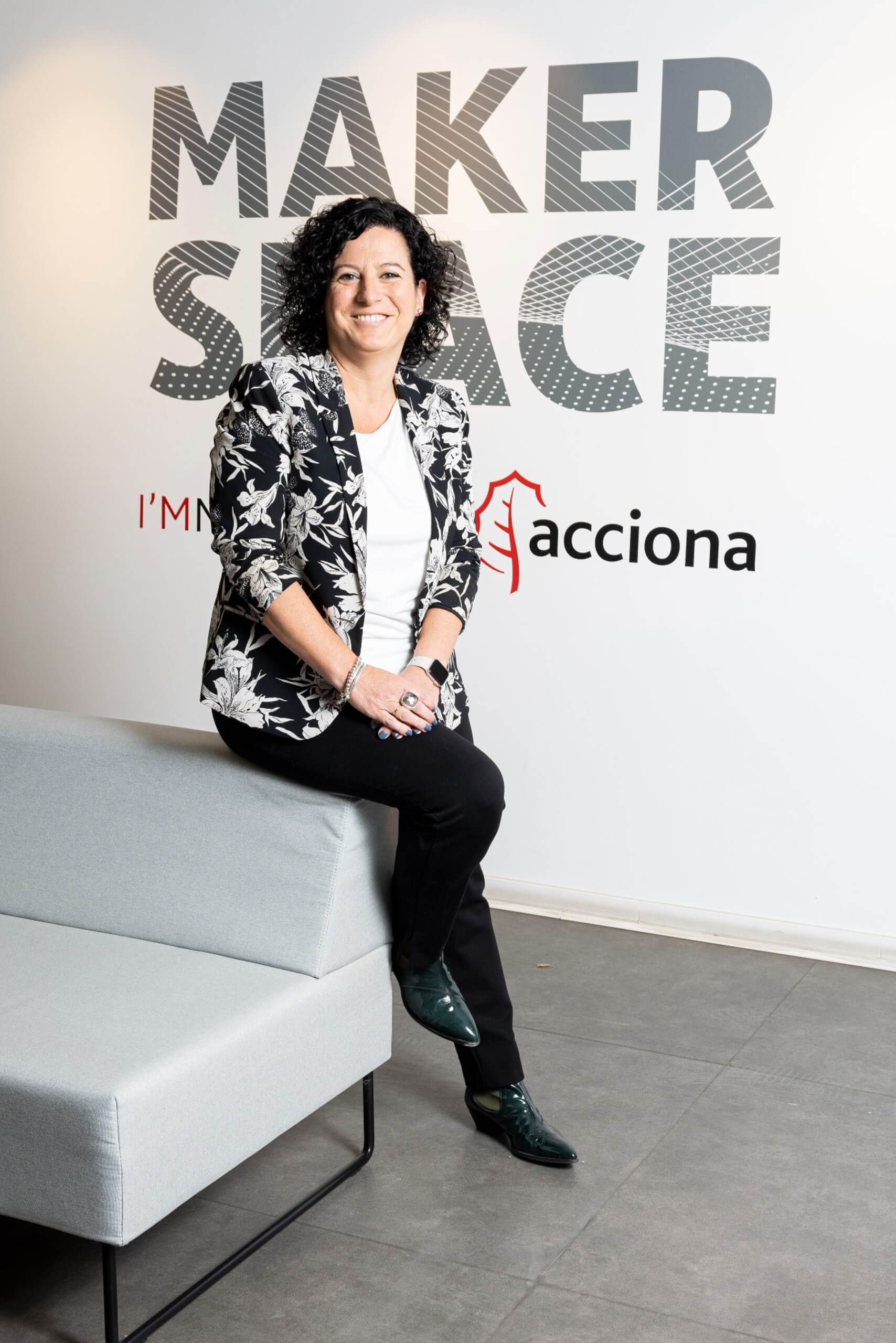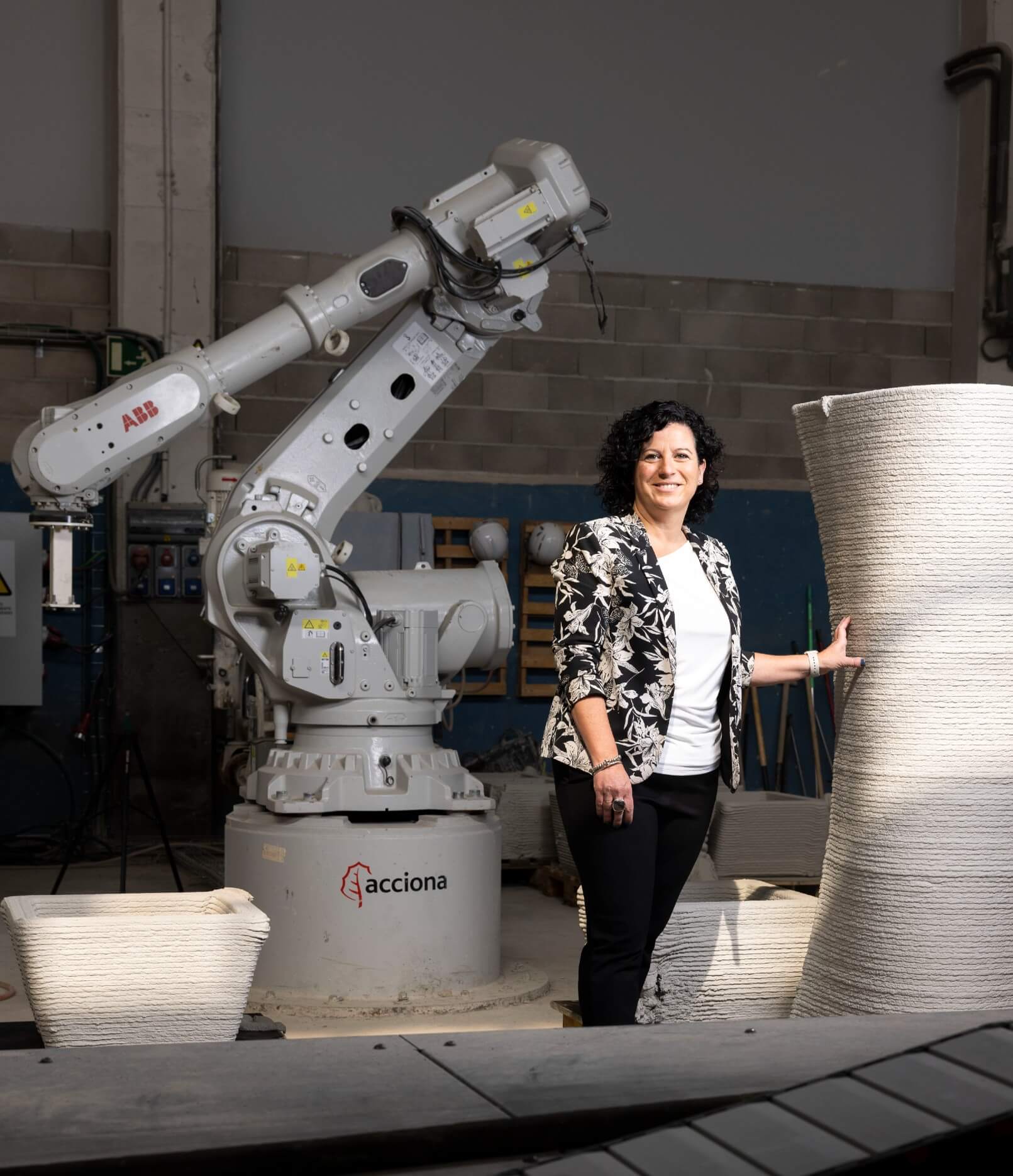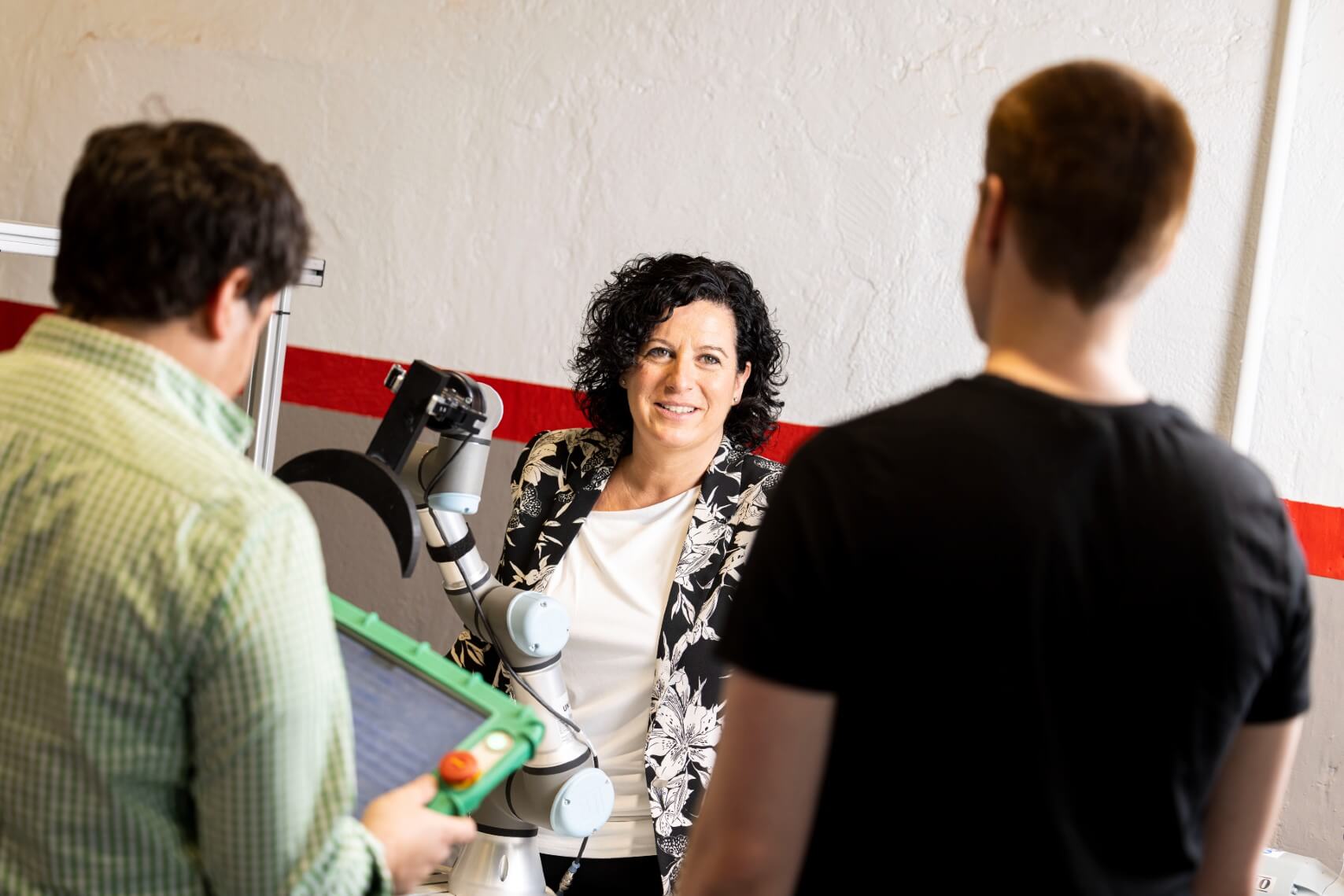Four years ago, a newly created department in her current company crossed her path: the Digital Hub. At that first meeting, she was asked a question that sounded like a blank check: “What do you want ACCIONA’s Smart Cities department to be like?” Elena embraced this new professional phase without any hesitation. However, instead of constructing physical structures, she would focus on building a department and fostering an innovation philosophy this time. Initially, the team consisted of just a dozen individuals, but over the past four years, the staff has tripled in size. They have also stopped talking about Smart cities to focus on the Smart society. How and why can a company have such a large-scale impact? And she goes on to explain.
Today, I have been to the future.
“In the end, a company like ours has the advantage that we are the perfect scenario to test Smart cities: we have lighting, we have cleaning, we have a lot of mobility solutions that are being used in an ACCIONA context. And that was a tremendous advantage in the quest for new technology that would change the day-to-day life of cities”. This translates into numerous initiatives that help each area, be it Energy, Infrastructure, or Water, to face their challenges with an innovative perspective.
A basic example would be a comprehensive rehabilitation project that ACCIONA has undertaken in a building in Seville. There, her colleagues have proposed the creation of a 3D-printed bench for the central courtyard: a unique, custom-made piece without the corset of standard formwork.
We asked her which are the most disruptive technologies, and she initially opted for the metaverse. And not because of the technology per se but because of its practical application and the collaborative approach it brings to them. “We are using it for remote meetings, for teams that have to work together […] for the training of operators who have to face situations with machinery in which they normally cannot be trained and that the fact of doing it virtually is the closest thing to a real experience”. She adds that this combination of collaboration and immersion allows you to have a “teacher in front of you who is guiding you […], someone who knows how to correct you at the moment”.
Another of the mainstays they are developing in the metaverse are digital twins, i.e., reliable recreations of physical environments that allow modeling a facility’s operation and even intervening in its procedures. In this sense, they are developing digital twins of tunnel boring machines that will enable teams to visualize their behavior together from different locations.
“To the younger generations, I would say not to let others or themselves impose barriers, and always to have a thirst for learning, to ask questions, and to seek answers.”
One of the experiences that has marked her the most in terms of technological innovation is using the first augmented reality devices. “I remember perfectly the first day I tried on the first Microsoft HoloLens […]. I remember they gave us a demo in which you saw as if you were an air traffic controller: the flights, the origin, destination, where they were at every moment […]. I remember that day I said: today I have been in the future”.
And she tells us, of course, about how artificial intelligence is helping them to analyze millions of data points in their day-to-day work to draw conclusions where they used to rely exclusively on experience. From tenders and technical specifications to the execution of projects, AI is already the present: “There is real progress in these very rapid conclusions; artificial intelligence is already helping to speed up all these processes,” she says.
If AI analysis is essential, the predictive dimension is no less so. Specifically, they use artificial intelligence to predict weather factors and their impact on roads. For example, how a snowfall can affect a stretch of road and how to anticipate the use of snow melting and snowplows.
A message for the next generation.
The interview concludes with a reflection on the intersection between conceptual and technological innovation and the physical world, seeing things grow before your eyes and the impact of what you do in the real world. Elena says she sees computer scientists and developers jumping into big digital companies without understanding that they will be just another cog in the wheel, a digit lost in a sea of bits. “Here, you are going to do real projects. And on top of that, they let you put them in business, and the business person gets involved and tells you what their situation is; and then you prepare a development for them, and you are doing it with them, and you test it and you see it […]. It’s a bit like a construction site, where you see it completed”.


